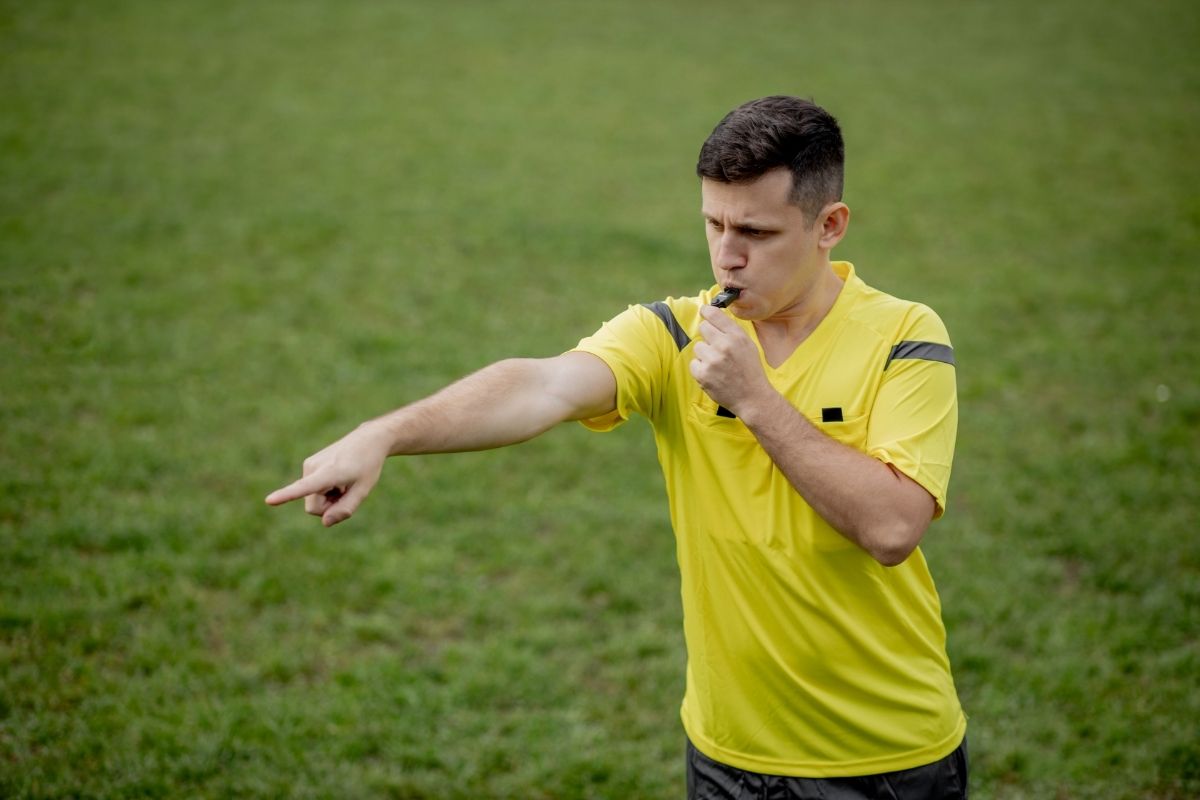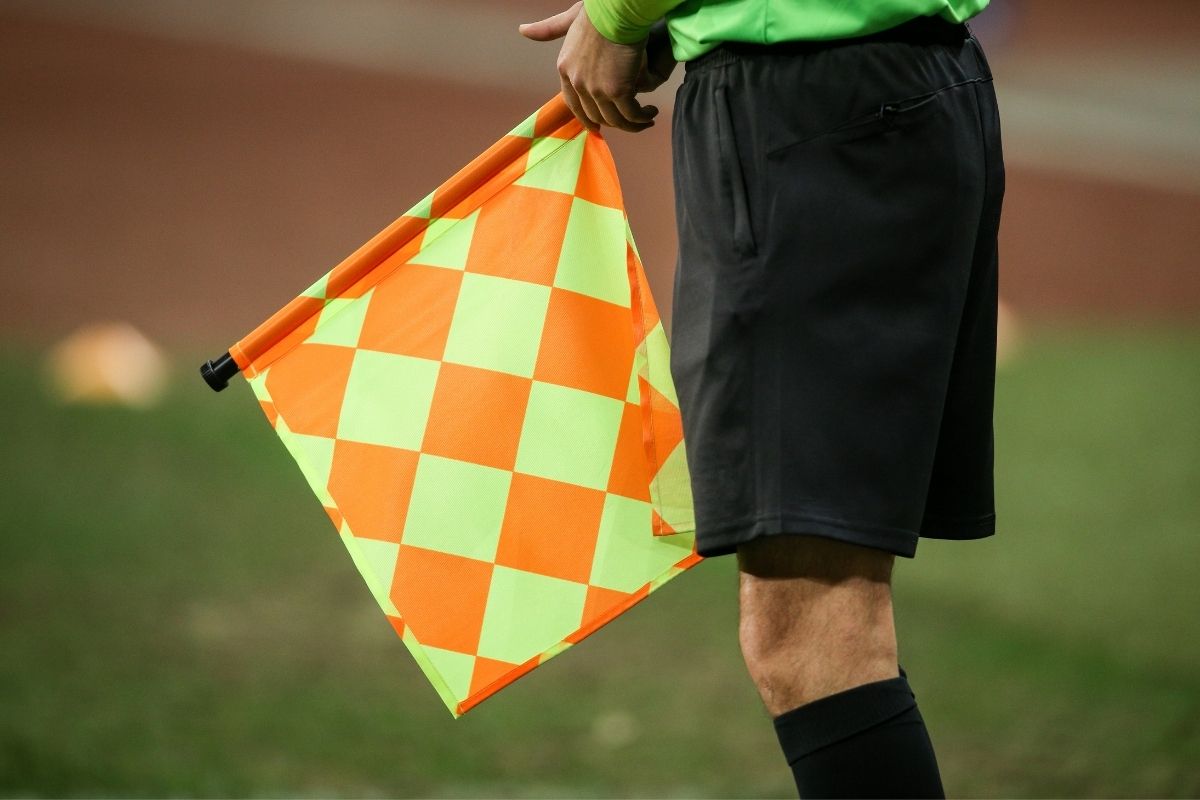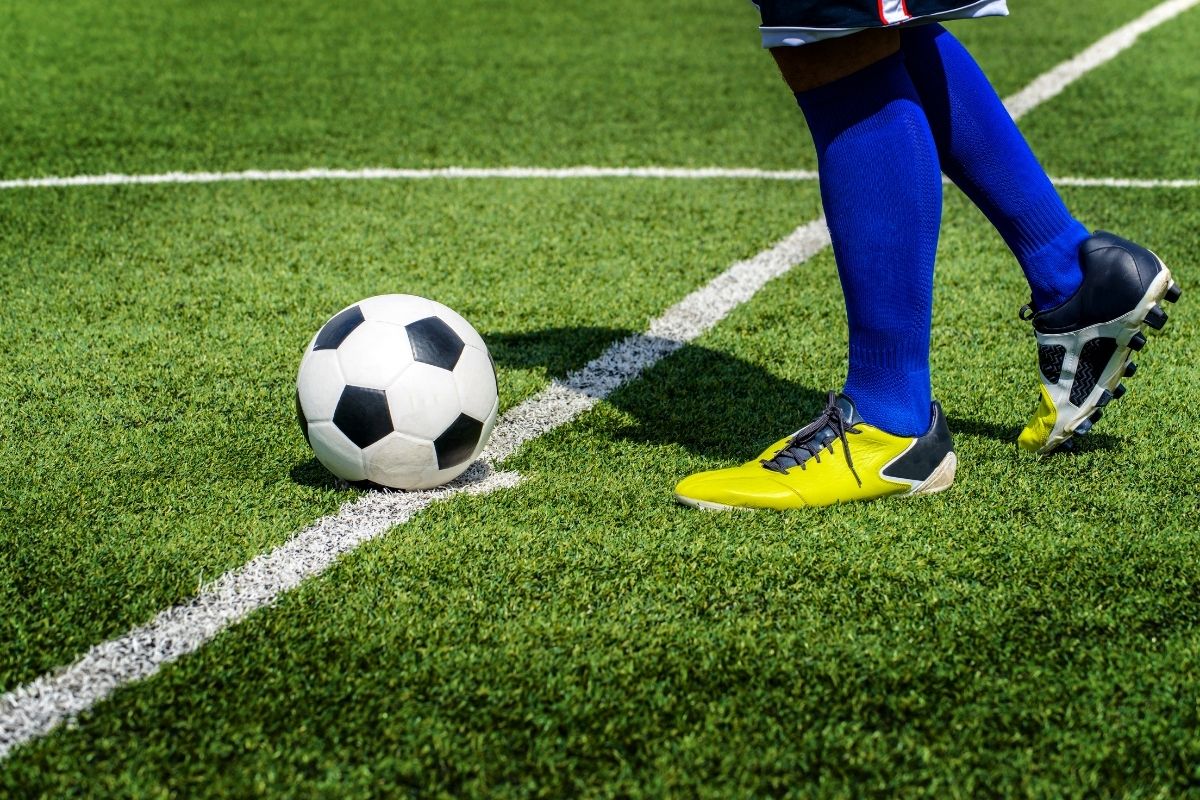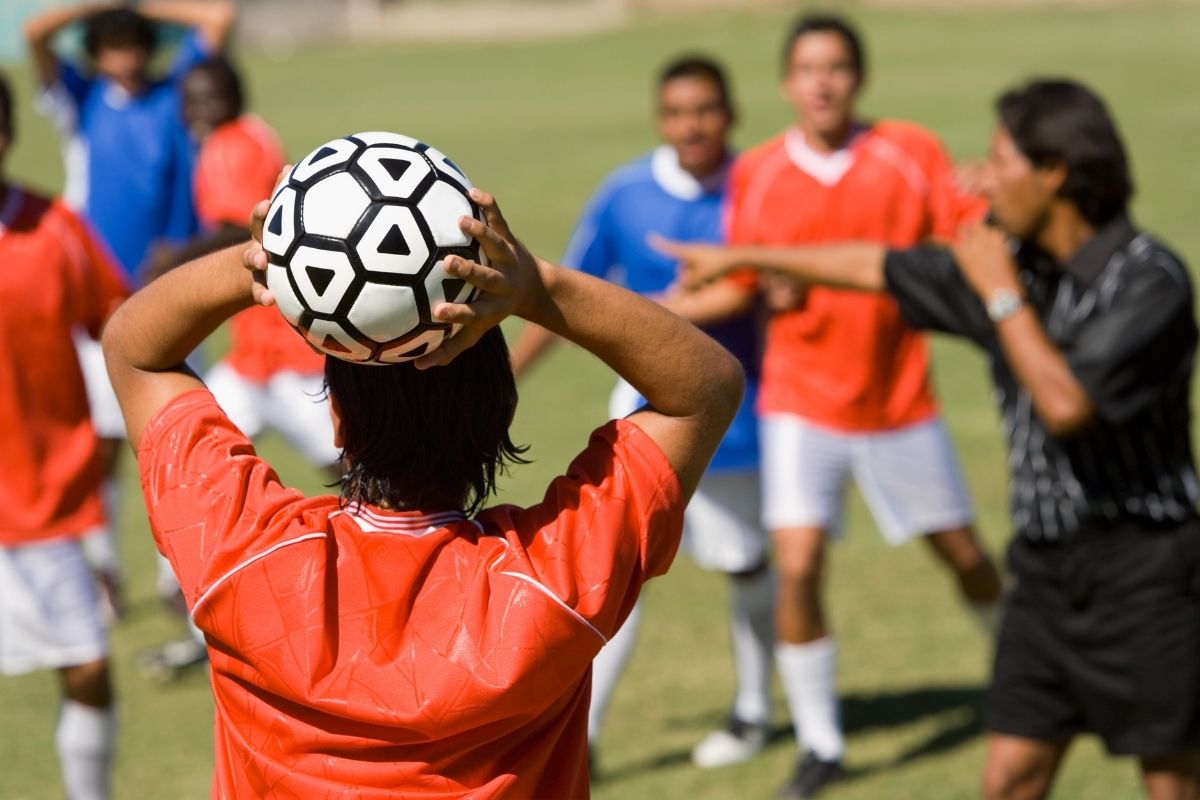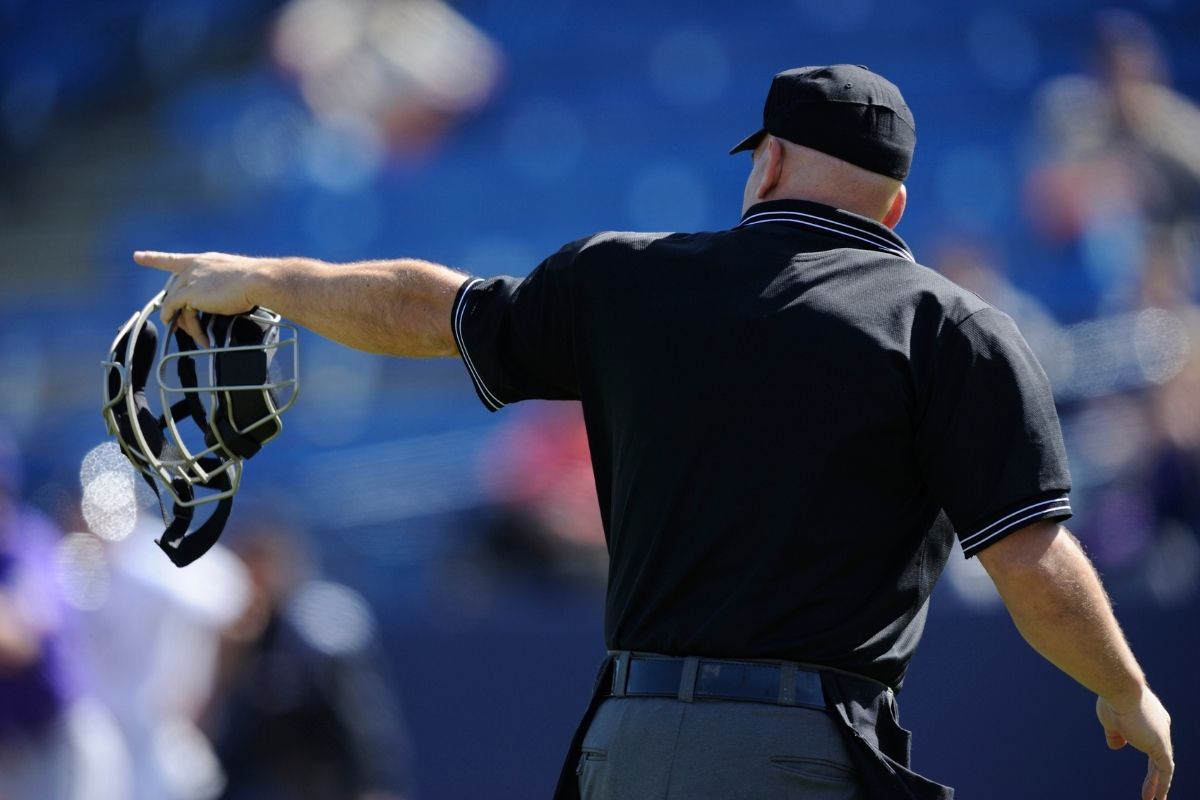Soccer is one of the most popular sports in the world. Soccer is such a well-known sport that the soccer players who reach the major leagues are even recognized by people who are not interested in soccer.
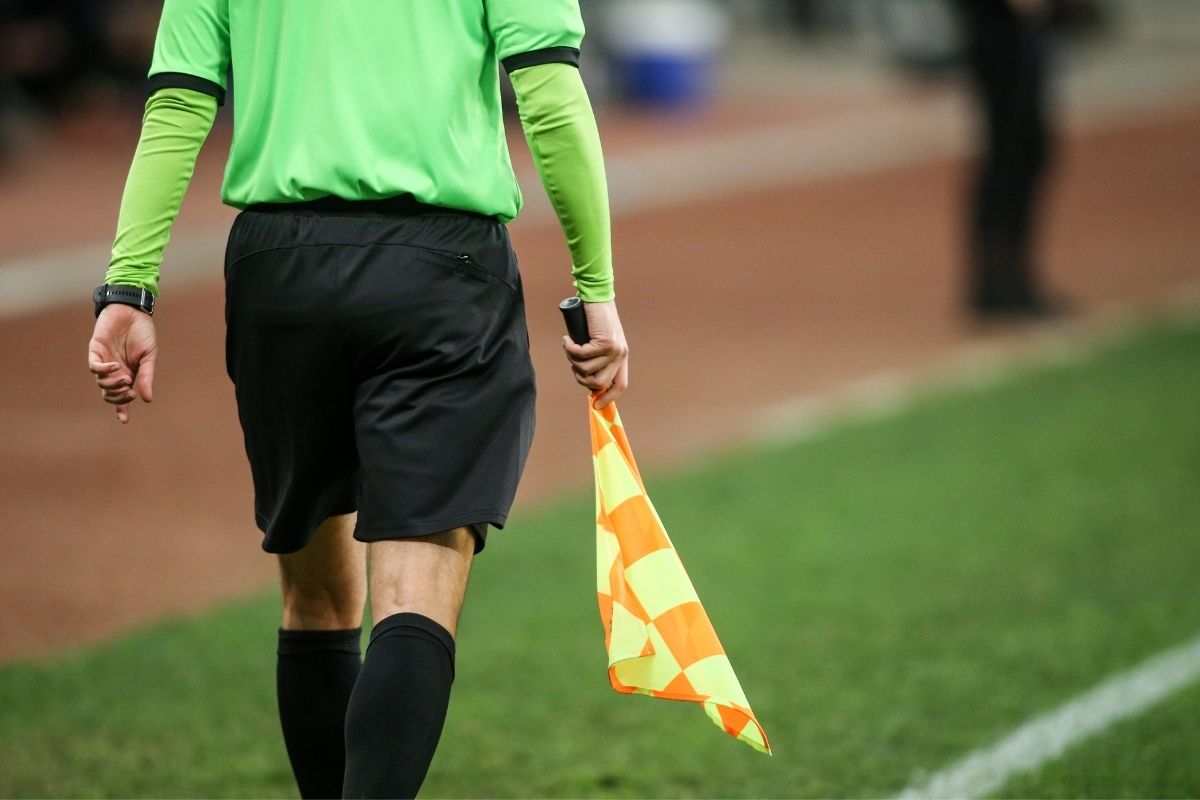

Whilst the major soccer players get the recognition they deserve, many other valuable members of this sport are often overlooked. One that comes to mind is the soccer linesman.
For those of you who are new to the game of soccer, you might be confused about what a linesman is and their role in the game.
Well, a linesman is an official of the game and they are often referred to as the assistant referees. In a soccer game, there are usually two linesmen who stand on either side of the pitch on the touchlines.
If you are interested in developing your knowledge of soccer linesmen and how they are involved in the game, then you have come to the right place.
In this guide, we are going to walk you through the duties and responsibilities of a soccer linesman.
Out Of Bounds/Out Of Play
One reason it is important to have a linesman in soccer is that they are able to judge when the ball has gone out of the pitch.
Since linesmen stand on the touchlines, they have a better view of when the ball has crossed over the touchlines completely.
When the entire ball does go over the touchline, the linesman will signal with their flag.
Incidents The Referee Doesn’t Witness
The referee is in charge of watching 22 players and ensuring that the altercations between those players are observed. However, the referee is human and it is hard for any human to keep a watch on 22 people.
So, part of the linesmen’s duties is to help with this. There will be incidents that the referee doesn’t witness.
If you are a fan of football then you would have probably witnessed times where the referee is dealing with an altercation and another altercation happens elsewhere on the pitch.
The duty of the linesman is to observe what the referee cannot see to help make sure the game is being played fairly.
The referee is supposed to listen to the advice of the linesmen when they do not witness an incident.
Joining The Field Of Play
It is not common for linesmen to join the pitch and the field of play, as their main duty is to stay on the touchline. However, there might be times when the referee needs the assistance of the linesman, so they join the field of play.
Examples of times when linesmen might be needed on the pitch are when they need help with the procedures of free-kicks.
As mentioned earlier, linesmen might need to interfere and join the field of play when altercations between soccer players occur.
Assistant referees are allowed and are expected to join the pitch when there is a mass altercation between players.
Making The Offside Call
Making the offside call is one of the duties that a linesman is most known for. When the linesman sees a soccer player that is offside, they will raise the flag.
Observing a player that is offside is incredibly difficult as it takes place quickly and they need to be able to make the decision instantly.
Deciding What Set Piece Takes Place
Not only does a linesman tell the referee when the ball has left the pitch but they also make a judgment on what set-piece takes place to restart play. For example, the linesman will help to decide if a goal kick, corner kick, or throw-in should restart the game.
Of course, the referee is the one that makes the final call but the linesman helps with the process.
Substitutions
When a substitution takes place, the manager will notify the linesman nearest to them that they would like to make one. The linesman will then need to tell the referee that a substitution has been requested.
Penalty’s
When a penalty is given, a linesman has two duties. The first thing the linesman needs to be watching out for is whether the goalkeeper left the goal line before the soccer player kicked the ball.
The other thing a linesman needs to determine is whether the entire ball went over the goal line.
Signals Of The Linesman
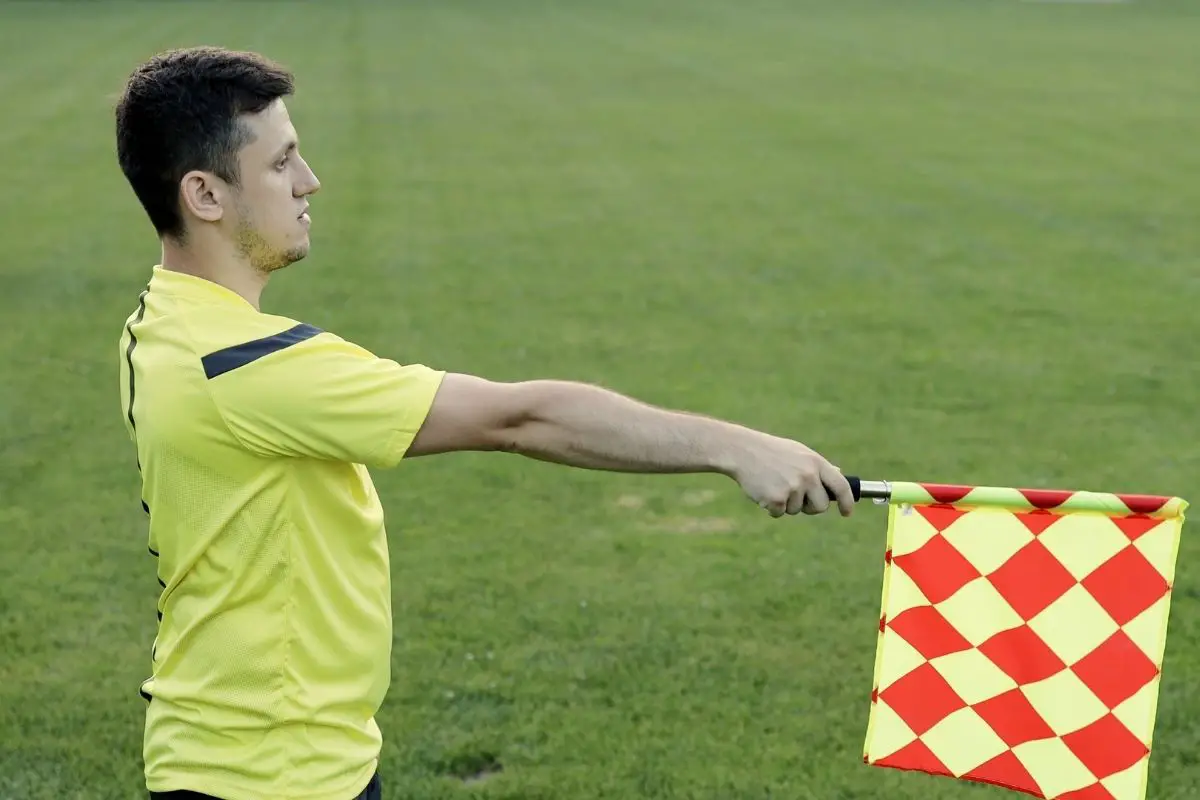

If you want to become more familiar with the duties of a linesman, then it is important to understand the signals they make.
Flag Up
This is one of the signals that most people are familiar with. It is also one of the simpler signals to understand. When the linesman puts the flag up, it means that the referee needs to stop play.
Sometimes the referee might not see the flag signal, so the other linesman will mirror the signal to try and catch the referee’s attention.
The Ball Is Out Of Play
This is the main duty of the linesman, to signal that the ball is out of play. To indicate the ball is out of play, the linesman will signal with their flag.
If the flag is at a 45-degree angle and is horizontal, in line with the touchline, the linesman is stating it needs to be a throw-in.
The linesman also indicates which team takes the throw-in. They do this by pointing their flag and whatever team is attacking in that direction takes the throw-in.
If the linesman is near the goal and they are pointing the flag to the goal, this indicates that a goal kick should take place.
However, if they are near the goal but the flag is at a 45-degree angle, pointing towards the corner this indicates a corner kick.
Flag Above Head
If the linesman is standing with the flag above their head and is holding the flag with both hands, this signals a substitution is taking place.
Final Thoughts
Linesmen play an important role in a soccer game, but their main duty is to help assist the referee.
We hope this guide has helped you understand the duties of a soccer linesman. Thank you for reading.
- Can You Play Pickleball on Grass? Tips and Tricks - June 12, 2023
- Do Pickleballs Wear Out? Everything You Need to Know - June 12, 2023
- Can You Play Pickleball on Concrete? A Guide to Playing on Hard Surfaces - June 12, 2023

